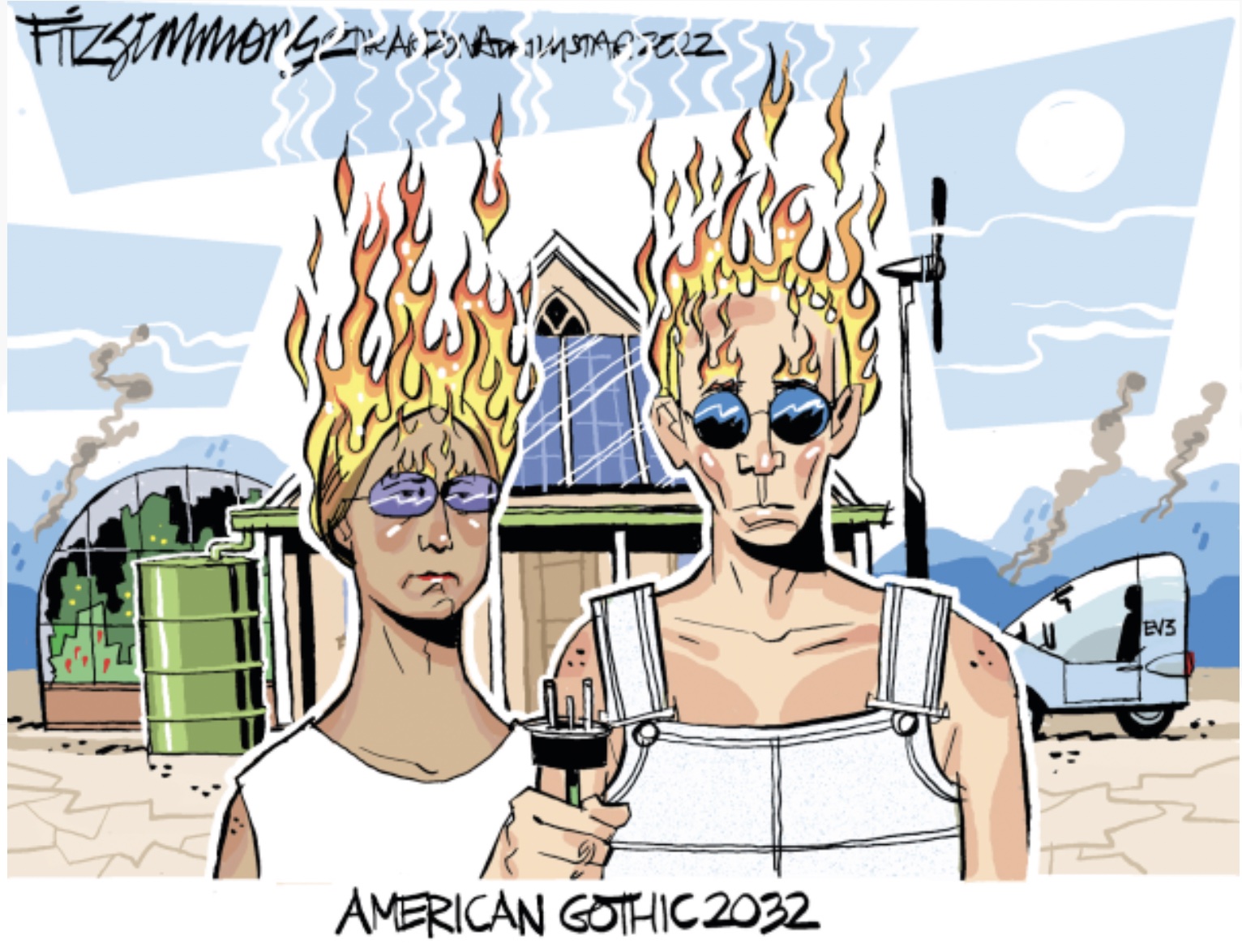Clear and Present Danger
The Climate Emergency Requires Action

Greenhouse-gas emissions from our energy production, industrial activities, transportation, buildings, and agricultural practices are causing a global climate crisis. It’s real, it’s bad, and it’s getting worse.
To transform our civilization and stabilize our climate, international organizations, countries, local governments, businesses, and individuals have developed substantial climate plans to reduce emissions and replace fossil fuels.
To preserve a livable world this transformation must happen at an unprecedented speed and scale. Sophisticated climate policy modeling shows that this is still possible. The real problem is the lack of political will to carry out the transformation we need.
For example, President Biden’s administration has enthusiastically embraced the need to address the climate crisis. However, in the U.S. Senate, Senator Mitch McConnell and the GOP ruthlessly block climate policy action.
In a speech last week Biden said, “As President, I have a responsibility to act with urgency and resolve when our nation faces a clear and present danger. And that’s what climate change is about. It is literally, not figuratively, a clear and present danger. The health of our citizens and our communities is literally at stake.”
Biden understands the global climate emergency and the need for broad, long-lasting action by Congress. To overcome McConnell’s blockade, the administration has been working with Democrats in the Senate to develop a budget reconciliation proposal that would include significant climate provisions.
Now, after a long, gut-wrenching negotiation, Senator Joe Manchin committed to supporting a reconciliation bill called the Inflation Reduction Act of 2022. It appears Manchin’s support will provide the 50 votes needed to pass the bill in the Senate.
The $369 billion bill includes provisions on taxes, healthcare, and climate. The major climate provisions are:
- Tax credits for zero-carbon power plants
- Incentives for electric vehicles
- Help for people to lower energy costs
- Investments in domestic manufacturing
- Lowering methane emissions
- Investments in low-income communities
- Programs for agriculture and forests
It is estimated that these climate provisions will reduce U.S. greenhouse gas emissions 40% by 2030. Many in Congress are already expressing support.
- Representative Alexandria Ocasio-Cortez commented, “I do think [the bill] favors climate progress and drawdown.”
- Senator Sheldon Whitehouse called the climate provisions “a very significant, very laudable first step.”
In the days ahead, as the bill moves through the Congressional approval process, please call and urge your representatives to support it. If approved and signed by the President this legislation will be a significant step toward maintaining a livable world. We need Congress to act now on the clear and present danger of the climate emergency.



